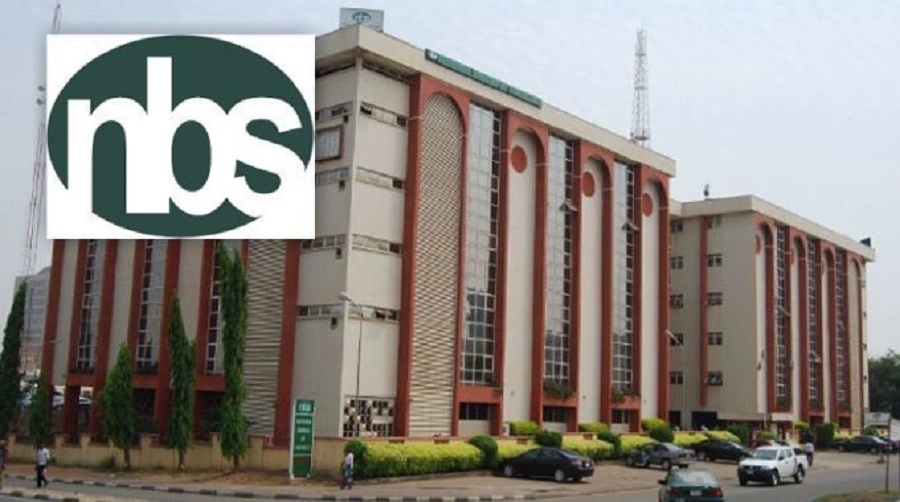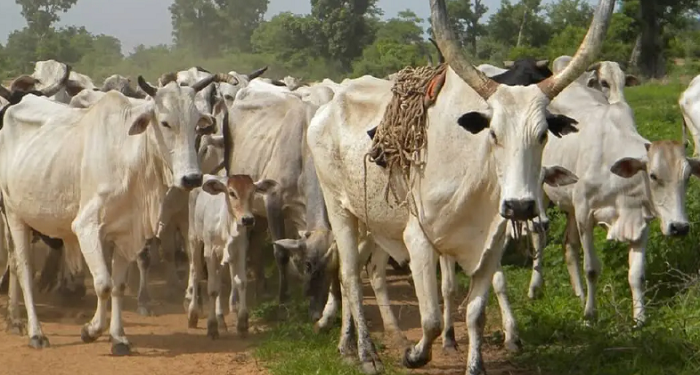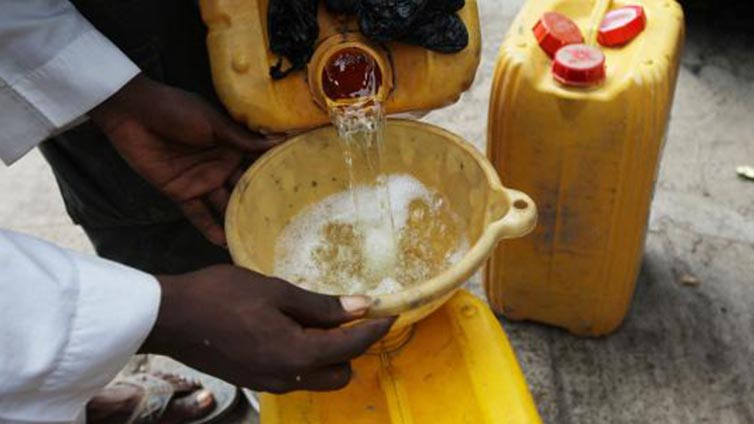Article Summary
- Nine oil-producing states in Nigeria received N970 billion as 13% oil derivative in 2022.
- Delta State received the highest share of N296.6 billion, representing 30.6% of the total disbursement.
- Anambra State joined the list of oil-producing state beneficiaries, receiving N4.2 billion in the review year.
Oil-producing states in Nigeria received a whopping sum of N970.2 billion as part of the 13% oil derivative funds in 2022, which is N521.5 billion higher than the N448.7 billion shared in the previous year.
Of the amount shared in 2022, Delta State received N296.6 billion, accounting for 30.57% of the total, while Akwa Ibom followed with N222.52 billion. This is according to data culled from the monthly FAAC reports of the National Bureau of Statistics (NBS).
A review of historic data from Nairalytics – the research arm of Nairametrics, the amount shared in 2022 represents the highest on record, higher than the N424 billion, N536.3 billion, N552.5 billion, and N346.8 billion received in 2020, 2019, 2018, and 2017 respectively.
The improvement in the 13% oil derivative fund to the oil-producing states is largely attributed to the surge in crude oil prices in the review year, following the war between Russia and Ukraine that started in February 2022. Global crude oil prices gained over 43% year over year in 2022.
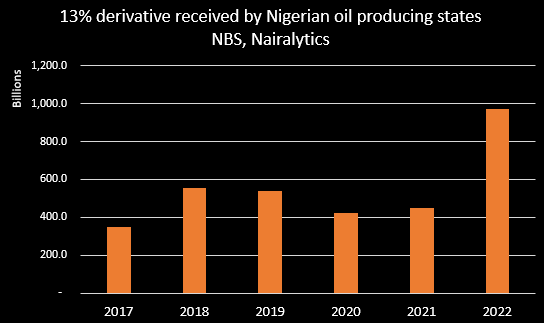
About the 13% derivative fund
Monthly, the Federal Account Allocation Committee (FAAC) disburses funds to the federal, state and local governments in Nigeria from revenue generated in the previous month, which includes proceeds from crude oil sales.
- According to the Nigerian constitution, the federal government is entitled to the majority of the money made from the sale of oil, with the state and local governments receiving a smaller portion.
- However, the constitution requires that 13% of the money made from oil production be allocated to the oil-producing states in order to redress the economic discrepancy between oil-producing and non-oil-producing states.
- The 13% oil derivative seeks to make up for the negative social and environmental effects of oil exploration and production in the states that produce the fuel.
- The oil-producing states include Abia, Akwa Ibom, Bayelsa, Delta, Edo, Imo, Ondo, and Rivers. However, Lagos State joined the list, albeit temporarily, while Anambra State was added to the beneficiaries in 2022.
Breakdown of disbursement
Delta State led the list of states with the highest amount in 2022 with N296.6 billion, accounting for 30.57% of the total disbursements to the nine states. The amount received by Delta State increased by 109% compared to N141.9 billion received in the previous year.
- Akwa Ibom State followed with a collection of N222.5 billion, representing 22.9% of the total amount, while it grew by 144% from N91.2 billion received in 2021.
- In third place was Bayelsa State with N188 billion, which is 115.5% higher than the N87.2 billion received in the previous year.
- Others include Rivers (N169.8 billion), Edo (N37.5 billion), Ondo (N25.9 billion), Imo (N18.6 billion), Abia (N6.9 billion), and Anambra (N4.2 billion). It is worth noting that Lagos State did not receive any funds in the review year, having received N3.78 billion in the previous year.
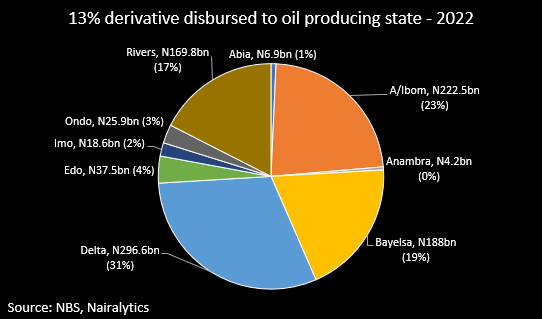
Anambra joins the list and received N4.3 billion
Anambra State was added to the beneficiaries of the 13% oil derivative as one of the oil-producing states in the country, receiving N4.3 billion in 2022.
- Recall that the governor of Anambra State, Willie Obiano had announced last year that the state would start receiving benefits as an oil-producing state.
- According to the governor, he was informed by the Nigeria Midstream and Downstream Pricing and Regulatory Agency (NMDPRA) which confirmed the lifting of crude oil in commercial quantity in the state.
- The implementation is coming 10 years after Orient Petroleum struck crude oil in the state. The state had been placed on what was described in the oil and gas industry as a strategic reserve despite having an abundance of crude oil and gas.
Bottom line
The implementation of the 13% oil derivative disbursement to the oil-producing states in the country has been a subject of controversy over the years, considering the fact that the fund’s disbursement is yet to have an obvious significant impact on the development of the regions.
Despite the monthly allocations to the states, they tend to be highly indebted both locally, while internal revenue generation remains below par apart from Lagos State.
Lagos Delta and Rivers are amongst the states with the highest domestic debt stock as of December 2022. According to data from the NBS, Lagos State owed N807.2 billion, Delta (N304.2 billion), while Rivers State’s debt stock stood at N225.5 billion. It is important for the state governments to channel these funds towards improving and developing their respective states.



